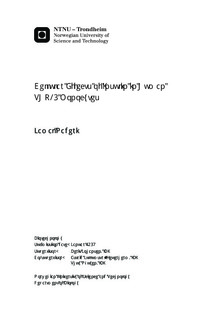Cellular Effects of Insulin in Human THP-1 Monocytes
Master thesis
Permanent lenke
http://hdl.handle.net/11250/2351489Utgivelsesdato
2015Metadata
Vis full innførselSamlinger
- Institutt for biologi [2575]
Sammendrag
Excess of insulin in the circulating blood relative to the level of glucose (Hyperinsulinemia) may be linked to systemic low-grade inflammation and some chronic disease such as the metabolic syndrome, type 2 diabetes (T2D), and cardiovascular disease (CVD). The function of high levels of insulin in vascular smooth muscle cells (VSMCs), endothelial cells (ECs), and macrophages in relation to CVD has been investigated, but exact role of high insulin levels in monocytes, as an important cell type in the pathogenesis of CVD, is largely unknown. In order to better understand the physiological consequences of high levels of insulin in monocytes, we investigated the cellular effects of insulin in THP-1 human monocytic cell line by cell counting, resazurin assay, and flow cytometry cell cycle phase analysis in a dose- and time-dependent manner.We found that insulin induces dose- and time-dependent hyperproliferation of THP-1 cells, as observed by cell counting (significant and most evident increase in cell numbers by 23 % following 24 h at 100 nM insulin). Insulin did not change THP-1 monocytic morphology and color of culture medium, as monitored by microscopy. Insulin treatment also did not trigger cell adhesion to the bottom of culture flasks or clustering of cells. These findings are in agreement with a hyperproliferative effect of insulin in THP-1 monocytes as observations suggest that insulin may not promote differentiation of monocytes to macrophages. Insulin increases metabolic activity of monocytes in a cell density-, time- and dose-dependent fashion (significant increase in metabolic activity following 24 h with a seeding density of 20000 cells/well at 20 nM and 100 nM insulin, each by 5 %), as shown by resazurin bioassays. These stimulatory effects of insulin on cell proliferation and metabolic activity subsided following longer exposure periods. Finally, by flow cytometry, we demonstrated that insulin alters cell cycle phase distribution supporting that insulin may indeed be a dose- and time-dependent inducer of mitosis (significant and most evident alteration following 24 h at 100 nM insulin), hence this result validates the findings by cell counting and resazurin assay in favor of increased proliferation by insulin.In conclusion, the results of this study suggest that insulin increases monocyte proliferation, and hence may affect important aspects of monocyte function, for instance immune and vascular function.
